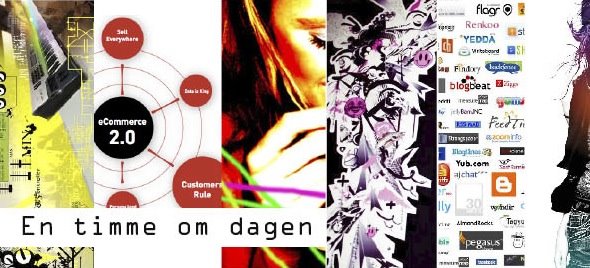Nu är det dags för det andra gästbloggsinlägget, skrivet av "Mr R".
Mr R´s första inlägg hittar du här: Gästbloggen - Mr R (del 1).
Presentation av Mr R
Mr R är Internetentreprenör och jobbat med strategi och affärsutveckling, just nu i full sving med att starta andra företaget. Intresserad av teknologier på webben som får användarna att hamna i centrum, "det är då de roliga sakerna börjar hända". Bloginlägg kommer att handla om detta, med risk för att han någon gång kommer att våga sig på att tycka till om annat.
Mr R har ordet
OpenID – a promising movement in the identity space
In my last post I alluded to the most hyped initiative in the online identity space. For those of you who already know what I am on about, congratulations, you are ahead of the curve. For the rest of you, chin up, at least you are on the right track by reading this blog. Of course, I am referring to OpenID.
OpenID is an open, free and decentralized user centric identity framework that allows users to log in to various sites on the Internet with a single identity. Yes, that's right, a "single sign-on" solution with the potential to alleviate the chaotic situation with multiple user names and passwords. The core concept behind OpenID is that users identify themselves much like websites do, with a URL (web address), seeing as URLs are at the centre of Web architecture, they constitute a solid base for a user-centric identity framework.
OpenID is one of several initiatives that aim to create an identity scheme that functions similar to how we identify ourselves in the real world, namely one identity opens many doors. In comparison to already well known online identity systems like Yahoo ID, Microsoft's Live ID and Google ID, OpenID is decentralized and open (controlled by the end user and not a company) and most of all designed to work on sites not necessarily controlled by the ID issuer. For example, a Google ID would never be accepted on Microsoft sites and vice versa but an OpenID would. In order for one identity framework to be adopted across the web and on the most popular sites and services it can't be owned and controlled by a single entity. OpenID is therefore the most promising solution to date, and has gained widespread adoption among early adopters, it is now time to reach the early majority.
OpenID is increasingly gaining adoption amongst large sites and blue chip firms, with the likes of AOL, Wikipedia, Digg, the mobile network operator Orange, Yahoo, Google and Microsoft having expressed support for OpenID and begun experimenting with its use on various services they operate. OpenID has support from above 8000 sites and over 160 million users and influential figures like Michael Arrington, famous for the blog Techcrunch, recently wrote:
"It's definitely time to declare OpenID a winner and the hope for making a single-sign on world a reality"
Sure hope he is right, it's high time to get an identity framework in place and start to build new, previously unimaginable, services, the opportunities for clever entrepreneurs are bountiful, more about that in future posts. Until then, as I am sure you are interested to find out what the fuss is all about, check out this site to learn all about OpenID (http://openid.net) which includes tips on where to acquire an OpenID, it may even turn out that you already have one, check here to find out, http://openid.net/get/. Can't get enough, then check out this presentation from one of the prominent figures in the OpenID foundation, Dick Hardt, http://identity20.com/media/OSCON2005/. It rocks, I promise. Over and out.
Fortsättning följer.
Dick Hardt - Identity 2.0.
måndag 12 maj 2008
Gästbloggen - Mr R (del 2)
Prenumerera på:
Kommentarer till inlägget (Atom)

.jpg)
3 kommentarer:
Kommer denna mystiska Mr R att avslöja sin identitet?
Kommer denna mystiska Mr R att avslöja sin identitet?
Så småningom tror jag att Mr R vågar kliva ut ur garderoben :)
Skicka en kommentar